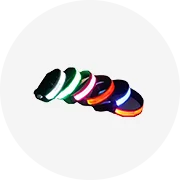
IP65 Solar Fence Light Outdoor Led Solar Powered Garden Lights Waterproof Luminous Wall Lamp

















Navigational aids are essential for maritime safety, and the solar light buoy stands as a pivotal component in this domain. These autonomous devices serve as markers for a myriad of aquatic applications, from delineating channels to marking the presence of underwater hazards. Solar light buoys harness the sun's energy, offering an eco-friendly and efficient lighting solution for marine environments.
The variety of solar light buoys available caters to different maritime requirements. Some are designed for calm waters like lakes and harbors, while others are built to withstand the rigors of open seas. Features such as robust construction, UV-resistant materials, and waterproofing are common, ensuring longevity and reliability. The integration of LED technology provides bright, clear illumination, which is crucial for visibility during night-time navigation.
These buoys are not limited to a single function; they are versatile in application. They are often deployed for marine navigation, marking out safe passage routes, and identifying marine sanctuaries. Additionally, they play a role in scientific research, aiding in data collection by marking research areas and serving as platforms for monitoring equipment.
The construction of a solar light buoy is a testament to durability. Typically made from high-density polyethylene or marine-grade aluminum, they are designed to resist corrosion and withstand harsh marine conditions. The solar panels are encased in impact-resistant materials, ensuring that they continue to function effectively over long periods.
The environmental benefits of solar-powered buoys are significant. By utilizing renewable energy, these buoys reduce the carbon footprint associated with traditional marine signaling. Their self-sustaining nature means they require less maintenance, minimizing the need for frequent human intervention and the associated environmental disturbance.
Selecting the appropriate solar light buoy involves considering factors such as the specific maritime environment, the required visibility range, and the buoy's anchoring system. It is crucial to assess the local conditions to ensure the buoy's solar panels receive adequate sunlight for optimal operation.